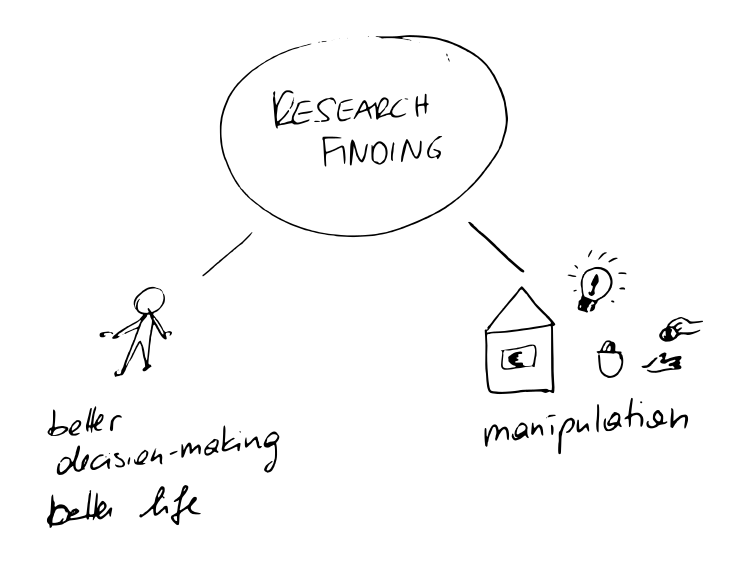A Guardian article with the title ‘Whisper it… ASMR videos are the quiet revolution going global’ found its way in my inbox this morning. And it nicely shows what happens with research and how it can easily miss its purpose.
The problem I have with research and business doesn’t have to do with the subjects per se. It’s great that we keep finding out new stuff about us and the world we live in. And there is nothing wrong with business, with exchanging goods and services for money. I do find, however, how some businesses use research findings is very flawed and lacking in ethics.
In my opinion, the purpose of research and science is to help us humans understand ourselves and the world we live in better. And this understanding in turn allows us to make better decisions – for ourselves and the planet.
Ideally, the insight becomes an embodied experience for people so they can make more informed and holistic decisions in daily life. I consciously added the word embodied because I think for an individual to make better decisions just by having more mental knowledge doesn’t work. Otherwise all of us wouldn’t make and bad or stupid choices ever. And we know that’s not our current reality. At least it’s not mine.
We do have a lot of knowledge, but we’re sometimes struggling to integrate it and align our ideas with our emotional and physical experience that manifests in our habits and actions.
Research findings can lead to new strategies and tactics to deal with problems. E.g. knowing that people relax when hearing repetitive sounds can be used to calm your child when it’s anxious.
What some businesses, or other disembodied systems, are doing is use this information provided by research to manipulate people into purchasing their product or services, as is described in the Guardian example where advertisers see ASMR as a new strategy to sell. Psychologist Tim Wheeler describes it this way:
Tthere is nothing wrong with using scientific insights to do business. What bothers me is the apparently underlying assumption of advertisers and businesses that they seem to think people need to be manipulated to buy their products. It’s the fact that they don’t consider their buyers at eye level but rather someone further down the line. And if that’s the case, what does that say about the product? That it wouldn’t sell well if people weren’t manipulated into buying? That business is more important than the people engaging with it on the consumer side? The issue is with the why and how companies use information about how we humans tick.
(Side note: Unfortunately, the disembodied mis-use of information is not exclusive to organizations, it’s also what we do to and with ourselves. It happens when we treat ourselves like objectified mechanical structures instead of human beings. We know what would be good for us, but instead of growing and learning through embodied experiences over time, we often try to impose what’s “good” on ourselves by mental willpower. This is often what we do with diets, exercise and plenty of other things.) In my experience this can work in the short term, but doesn’t lead to sustained growth and development.
I do believe that empowered and self-reliant individuals who know who they are and what they need are able to make healthy choices for themselves, no matter if they are relaxed or tense (I’m referring to the article’s context of ASMR). Ultimately, it is always a matter of awareness. If I am aware of myself, a problem and what’s going on inside of myself and in my surroundings, I can make conscious choices. I own my choice. If I am unconsciously influenced by something, I cannot make a conscious choice. It is, at least partially, made for me. This is true for my own unconscious behavior as well as manipulations from the outside that affect me.
Healthy, conscious choices by individuals are contributing to a healthier and more sustainable way of using our resources and our planet and they will subsequently also shape how we do business.
Maybe changing the underlying assumption many (large-scale) business seem to apply would change the economic landscape towards a more sustainable and human space for interaction.
Just saying people are smart enough that they won’t get manipulated into buying almost sounds like an excuse and brings the responsibility to the consumer. In my opinion, it’s a mutual relationship where both sides share the responsibility. Businesses are run by people and when using certain strategies to sell, they should be responsible and support the individual they aim to serve.
I believe business is personal. After all, big companies are made up of many, many people serving the company’s purpose. And the purpose was defined by some body at some point. If the ethics and values – that can be deduced from the business practices – are not longer contributing to a healthy population and a healthy planet, we – the people – can change them if we want. It’s up to us.


0 Comments